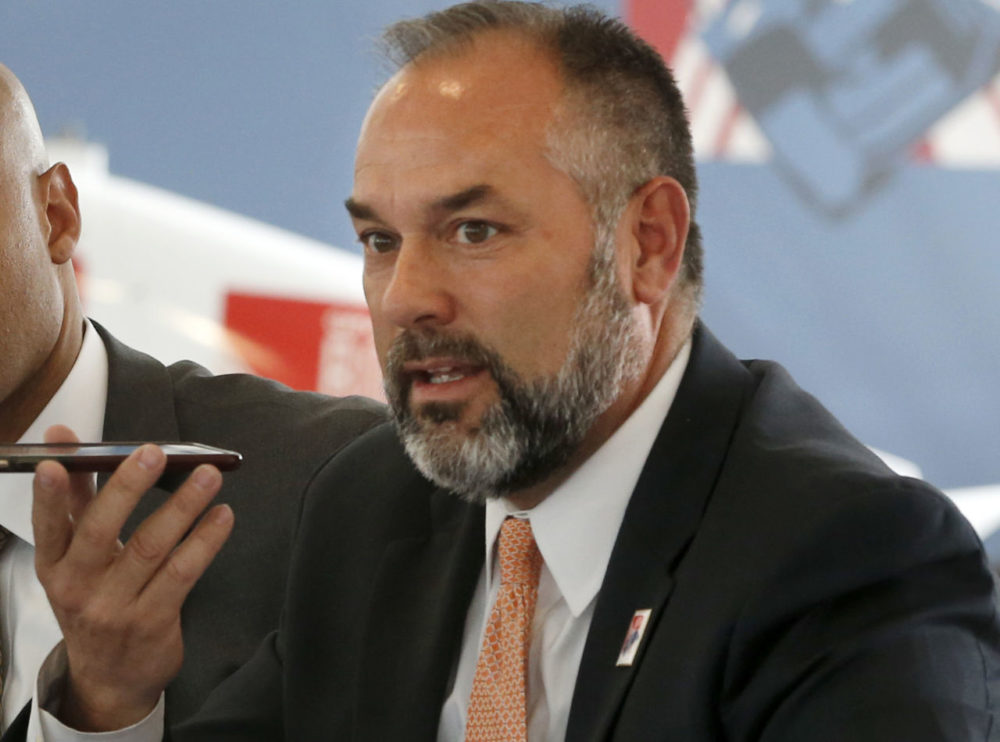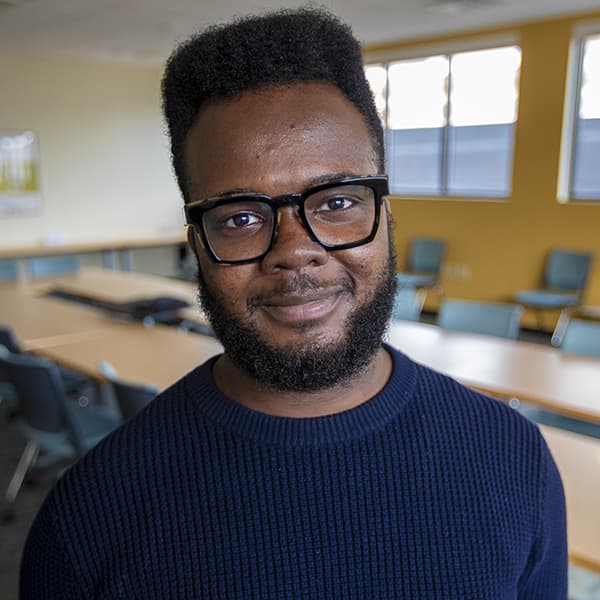Advertisement
Here's What You Need To Know About The Boston Calling Federal Trial

On Tuesday, a federal trial involving alleged corruption at Boston City Hall gets underway.
It's a trial that nearly didn't happen.
Attorneys for Kenneth Brissette and Timothy Sullivan — aides to Boston Mayor Marty Walsh — are scheduled to make opening statements in a trial that centers on whether the pair pressured operators of the Boston Calling music festival to hire union workers. The men are facing federal public corruption charges.
How Did The Case Get Here?
According to the indictment, the case stretches back to planning for the 2014 Boston Calling music festival, which at the time was held on Boston's City Hall Plaza.
In 2013, prosecutors argue that a local union asked Crash Line Productions, the operators of the festival, to enter into a contract to hire unionized workers. At the time, the company declined because they already had contracted nonunion workers.
In 2014, Walsh began his tenure as mayor. He hired Brissette as the city's tourism chief, and Sullivan as chief of staff of intergovernmental affairs.
The indictment outlines that the two men, shortly after assuming their roles, approached Crash Line Productions about hiring union workers for the music festival. Again, the production company declined.
The company then waited three months to receive needed permits from the city, prosecutors said, and did not receive them.
Then, three days before the festival, Brissette and Sullivan again talked to Crash Line management about hiring union workers, the indictment says. The company agreed. Shortly after, permits were issued.
Advertisement
This timeline represents the foundation of the company's claims against the city.
Then What Happened?
In 2016, Brissette and Sullivan were indicted on extortion charges under the Hobbs Act. (Those are the rules that govern public corruption.)
That indictment fell through in 2018. Judge Leo Sorokin said the government had to prove that the men personally benefited from their actions, and prosecutors said they could not meet that measure. At that point, Brissette and Sullivan returned to work at City Hall.
But in 2018, an appeals court said prosecutors did not have to meet Sorokin's standard to prove extortion. In this new trial, prosecutors aim to show that these two men used their position as public officials to make Crash Line Productions feel that they would face financial harm by not cooperating.
What Is The Basis Of The Government's Case?
Crash Line Productions did not have to hire the union workers because it was not a condition of their contract, but prosecutors are arguing that the company feared losing out on future contracts if they did not meet Brissette's and Sullivan's request to hire union workers.
Prosecutors also wanted to show that Brissette had been involved in another instance of corruption involving the TV show "Top Chef."
In 2014, that show was planning to film in several locations in Boston, including City Hall Plaza. Prosecutors said Brissette allegedly ordered the film permits for the plaza shoot to be held from the producers until the company made a deal to hire local union members.
Prosecutors claim Brissette then told some of the other filming locations in the city that the company had initially declined to hire union workers, and those locations then backed out of their agreements with the "Top Chef" production. The production ultimately left Boston.
Although Brissette was reprimanded by city officials for his actions, prosecutors argue his actions represented a pattern of behavior.
What Is The Key To The Defense's Strategy?
The defense team has maintained that the two men never had control of the permitting process and were trying to get people well-paying jobs.
The defense attorneys also cited earlier court decisions that ruled that public officials creating a fear of economic harm for businesses are scenarios that are not explicitly bad. Those cases — including ones that fell before the U.S. Supreme Court — often hinged on the idea that businesses have an interest to maintain good relationships with elected officials.
Prosecutors suggested that Walsh's previous background as a union chief colored the conversation between his aides and Crash Line Productions, but the defense team said the threat has to be explicit for it to be considered criminal extortion.
How Will The Case's Outcome Impact City Hall?
Prosecutors say they aren't going after City Hall through this case. However, the ties to Walsh's office by the defendants and others linked to the Boston Calling festival cannot be ignored — especially with Walsh on the witness list.
The indictment stated that city officials previously told Brissette to not overstep his boundaries as a public official, but it is unclear if, or how, city officials were involved in the planning of the music festival.
Beyond Walsh, a bevy of other city officials are on the witness list, including former Police Commissioner Bill Evans, but it is unclear if any of them will be called.
This segment aired on July 22, 2019.
